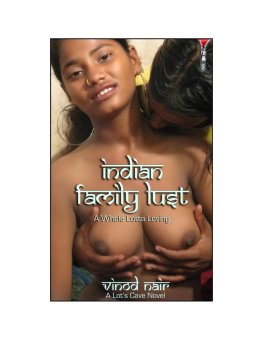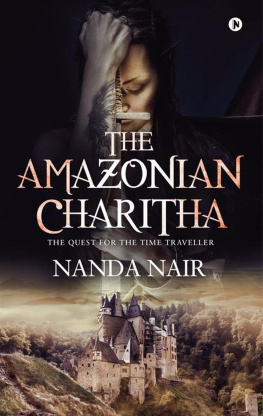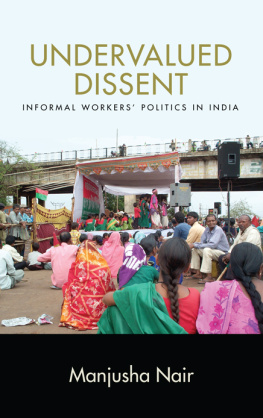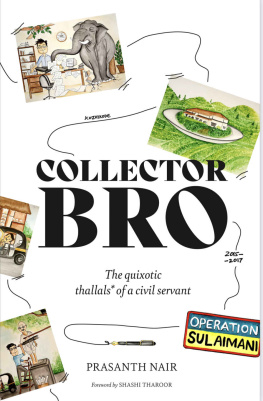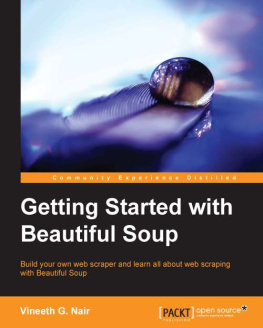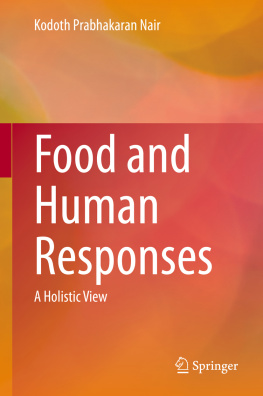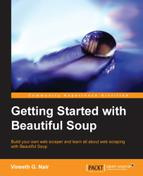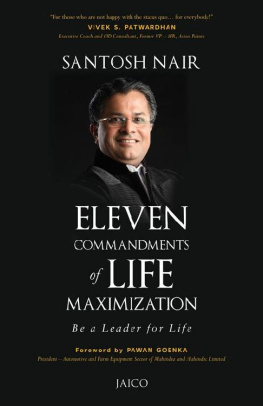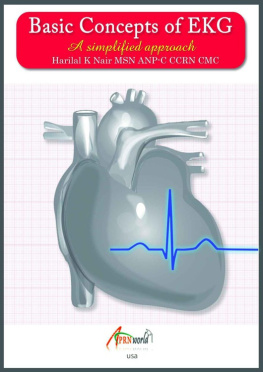Sreelekha Nair - Moving with the Times
Here you can read online Sreelekha Nair - Moving with the Times full text of the book (entire story) in english for free. Download pdf and epub, get meaning, cover and reviews about this ebook. year: 2016, publisher: Taylor & Francis Group, genre: Politics. Description of the work, (preface) as well as reviews are available. Best literature library LitArk.com created for fans of good reading and offers a wide selection of genres:
Romance novel
Science fiction
Adventure
Detective
Science
History
Home and family
Prose
Art
Politics
Computer
Non-fiction
Religion
Business
Children
Humor
Choose a favorite category and find really read worthwhile books. Enjoy immersion in the world of imagination, feel the emotions of the characters or learn something new for yourself, make an fascinating discovery.

- Book:Moving with the Times
- Author:
- Publisher:Taylor & Francis Group
- Genre:
- Year:2016
- Rating:4 / 5
- Favourites:Add to favourites
- Your mark:
- 80
- 1
- 2
- 3
- 4
- 5
Moving with the Times: summary, description and annotation
We offer to read an annotation, description, summary or preface (depends on what the author of the book "Moving with the Times" wrote himself). If you haven't found the necessary information about the book — write in the comments, we will try to find it.
Moving with the Times — read online for free the complete book (whole text) full work
Below is the text of the book, divided by pages. System saving the place of the last page read, allows you to conveniently read the book "Moving with the Times" online for free, without having to search again every time where you left off. Put a bookmark, and you can go to the page where you finished reading at any time.
Font size:
Interval:
Bookmark:

Beyond Well-being: Development of Nursing as a Modern Profession in Kerala
Status of Nursing: The Sword of Damocles?
Choice of Nursing: A Life Strategy
Migration: Delhi as a Transit Residence
Reconstructing Identities: Diasporic Politics and Gender in Delhi
- xix
- xx
| AIIMS | All India Institute of Medical Sciences |
| ANM | Auxiliary Nurse-Midwife |
| ANS | Association of Nursing Superintendents |
| CGFNS | Commission on Graduates of Foreign Nursing Schools |
| CPI (M) | Communist Party of India (Marxist) |
| CV | Curriculum Vitae |
| CWDS | Centre for Womens Development Studies |
| DNU | Delhi Nurses Union |
| KEM | Hospital King Edward Memorial Hospital |
| GNM | General Nursing and Midwifery |
| HIV/AIDS | Human Immunodeficiency Virus/Acquired Immunodeficiency Syndrome |
| ICN | International Council of Nurses |
| ICU | Intensive Care Unit |
| IELTS | International English Language Testing System |
| INC | Indian Nursing Council |
| JMS | Janwadi Mahila Samiti |
| MNWA | Malayali Nurses Welfare Association |
| NFIW | National Federation of Indian Women |
| NHS | National Health Service |
| NRSI | Nursing Research Society of India |
| TNA | Trained Nurses Association |
| TNAI | Trained Nurses Association of India |
| US | United States |
| UK | United Kingdom |
| UNICEF | United Nations Childrens Fund |
| USAID | United States Agency for International Development |
| asura | A negative supernatural being in Hinduism |
| avatar | Incarnation or manifestation of a supreme deity in Hinduism |
| ayah | maid, servant or nursemaid |
| Ayyappa | A deity worshipped mainly in south India, believed to be born out of the union between Vishnu and Shiva. |
| bahar | outside the home/public spaces |
| Brahminical | The system that perpetuates the cultural, social and economic practices of Brahmins, the traditional elite or priestly caste in Hindu society. |
| Chamar | A former untouchable caste found in the northern states of India whose main occupation was processing, manufacturing and trading in leather and leather goods Charaka Referred to sometimes as the father of the ancient Indian system of medicine and lifestyle, Ayurveda. |
| dai | Traditional midwife in some parts of South Asia |
| Dalit | Term used by former untouchable caste groups in South Asia for themselves |
| dawai | Medicine |
| denewali | giver, provider |
| deva | Benevolent supernatural being or God, opposite of asura. |
| dil | Heart |
| dosa | An equivalent of crepes or pancakes made from the fermented batter of rice and black lentils. A staple dish of southern India and Sri Lanka. |
| Ezhava | A former backward caste in Kerala, known also as Chokon and Thiyya who were mainly agricultural labourers, small cultivators and toddy-tappers. |
| ghar | Home/domestic space |
| Hindi | Official language of the northern states of India; also used as the official language of the Republic of India along with English |
| idli | Steamed, salted cake made from the fermented batter of rice and black lentils. The staple breakfast dish of the southern states of India. |
| Indra | The king of the devas and the lord of the heavens. |
| infirmire | Nurse (in French) |
| Kaliyugam | The last of the four stages of the cycle of time that the world goes through. It is condemned for its moral decay according to the Hindu scriptures. |
| Kudumba mahima | Family reputation and honour |
| Madrasi | Term used in ignorant typecasting of people from south India as hailing from Madras, with a derogatory connotation. |
| Mahabali | Benevolent asura king of the present region of Kerala associated with the Onam festival |
| mala | Hill |
| Malayali | A person whose mother tongue is Malayalam, originally from Kerala |
| mangalsutr | A gold chain with beads worn by married women in many communities in north India; its equivalent in south India is a pendant called Thali. |
| Marumakkathayam | A system of inheritance, descent and succession to property through female members of the family which prevailed in the past among communities like Nairs in Kerala. |
| methrani | Helper |
| Onam | Harvest festival of Kerala celebrating the homecoming of the legendary emperor Mahabali. |
| pardeshi | Foreigner/person who has no entitlement to a place |
| pathala | The world under earth where Mahabali was sent by Vamana, Vishnus incarnation |
| Perunnal | Local festival and feast of Christian churches in Kerala |
| pettachi | Midwife in Kerala |
| pooja or puja | Religious ritual and worship |
| pothujanam | General public |
| pravasi | Non-resident |
| Punjabi | Language of Punjab or the person speaking it |
| salwar-kameez | Loose trousers and long shirt or tunic, traditionally worn by people of south and central Asia, and became popular in the southern India since the 1980s. |
| sari | A strip of unstitched cloth ranging from 4 to 9 metres in length (worn with a blouse) that is draped over the body in various styles by women in many parts of South Asia, Burma and Malaysia |
Font size:
Interval:
Bookmark:
Similar books «Moving with the Times»
Look at similar books to Moving with the Times. We have selected literature similar in name and meaning in the hope of providing readers with more options to find new, interesting, not yet read works.
Discussion, reviews of the book Moving with the Times and just readers' own opinions. Leave your comments, write what you think about the work, its meaning or the main characters. Specify what exactly you liked and what you didn't like, and why you think so.

